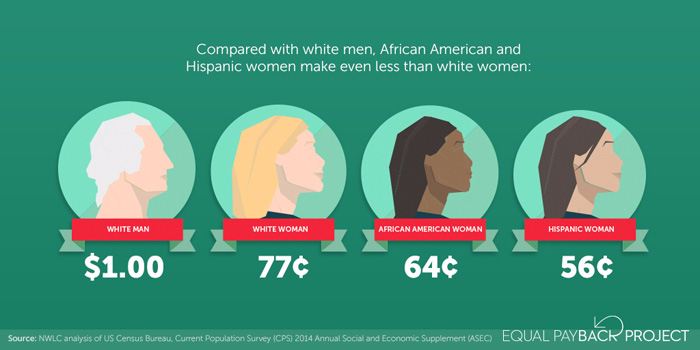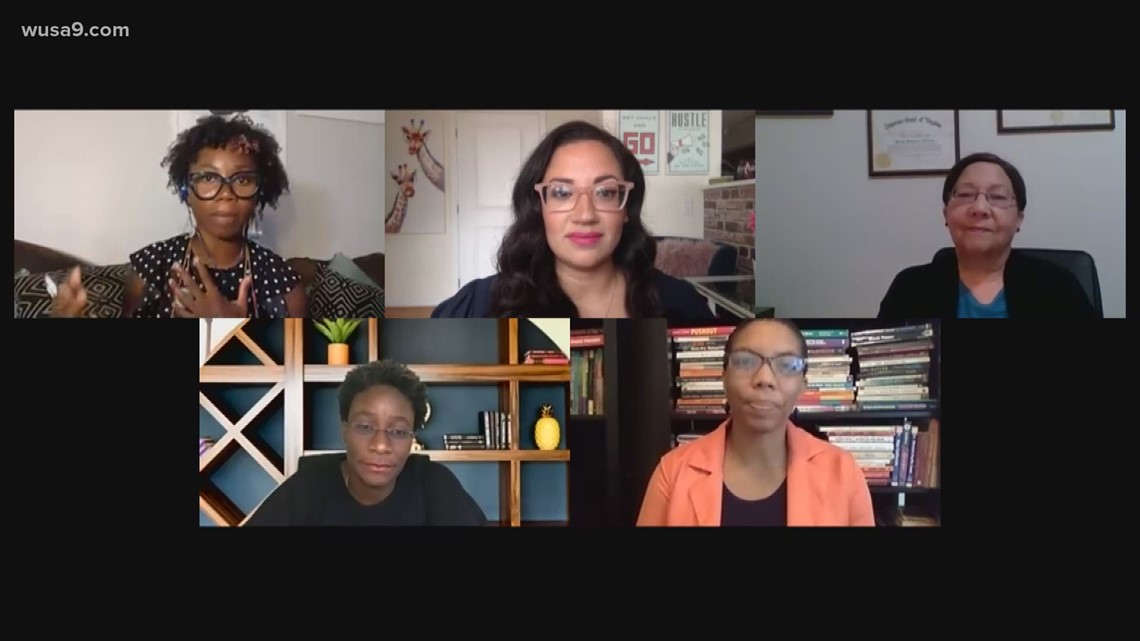
We can’t talk about workplace equality without also discussing how LGBTQ folks-and, in particular, transgender women of color-face some of the most significant workplace discrimination. Since 80 percent of Black mothers are the main breadwinners for their households, this pay gap heavily impacts their ability to make ends meet and to get ahead. If Black women were paid fairly, the average Black woman would earn nearly $950,000 more over the course of her career. And, sadly, the pay gap actually widens as Black women reach higher education levels, with the largest gap existing for Black women who have bachelor’s and advanced degrees.

These lost earnings drive up poverty rates among women, who are more likely to live in poverty than men.Įven though Black women ask for promotions and raises at about the same rates as white women, they are less likely to receive these promotions.
WOMENS EQUAL PAY DAY PROFESSIONAL
Over her lifetime, a woman’s lost earnings add up to $700,000 for high school graduates, $1.2 million for college graduates, and $2 million for professional school graduates. Native Women’s Equal Pay Day is on October 1st (57 cents per dollar earned by white men), and Latina Equal Pay Day is on October 29st (54 cents per dollar).Īlthough a few cents here and there might not seem like much, the cumulative impact of this disparity is immense. It takes some women of color even longer to earn the same amount of pay as men. However, Black women’s Equal Pay Day is nearly five months later as Black women make 62 cents per dollar earned by white men. Because women make 82 cents for every dollar men make, it took them 456 days for women to make the same amount of money that men made in the 365 days in 2019. Equal Pay Day for all women in the United States compared to all men in the United States was on March 31, 2020. Not all women experience pay inequality in the same way. This disparity is the lived experience of so many Americans and must be a call to action as we demand racial and economic justice for all workers. It has taken Black women 590 days to earn what white men earned in 365 because regardless of occupation, education, and experience, Black women are paid less than men. The date was chosen because today, 225 days after the first of the year, Black women have finally earned the same amount of pay that white men earned in 2019. More details can be found here.Today, August 13, 2020, is Black Women’s Equal Pay Day. The event is co-hosted by the City of Boston Mayor’s Office of Women’s Advancement (MOWA). In recognition of Boston Equal Pay Day, join us on April 20, 2023, for a panel discussion to explore the unique barriers of recruiting/retaining women and marginalized workers, followed by a resource fair.
WOMENS EQUAL PAY DAY FREE
Take action today and see where your numbers fall against national and BWWC data by visiting a free and confidential employer tool that enables you to produce your wage gap metrics within seconds of inputting your data. In honor of Equal Pay Day, we urge employers to take the first step towards achieving pay equity by examining your organization’s salary data to determine whether gender and racial wage gaps exist. And while this date comes more than a month later than National Equal Pay Day, we believe our numbers to be a more accurate reflection of real wage gaps because of how our data is collected - right off employer payroll systems versus through the Census. Our analysis points to April 20th, 2023, as Boston Equal Pay Day.

The Boston Women’s Workforce Council (BWWC)’s 2021 Wage Gap Measurement reflects an even larger gender wage gap, with women on average earning 70¢ for every dollar men earn in Greater Boston.

Today, March 14th is National Equal Pay Day, representing the day in 2023 women would need to work to earn the same amount men made in the previous year alone. Eighty-four cents – according to National Census data, that is how much women earn for every dollar men make.


 0 kommentar(er)
0 kommentar(er)
